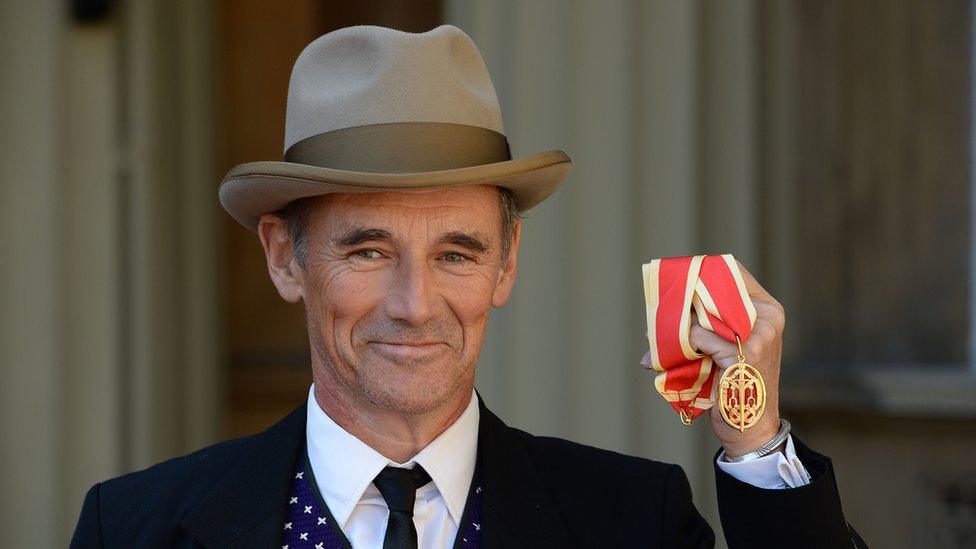Sir Mark Rylance: 'Acting used to be more accepting of oddballs'
- Published
Sir Mark said acting used to be more accepting of "oddballs" like him.
Theatre directors would not accept someone like me now, Sir Mark Rylance has said.
Reflecting on how he would be received in today's industry, Sir Mark said acting used to be more accepting of "oddballs" like him.
While directors "understandably" want actors who are "easy to work with", it can "also be a loss", he told the BBC's Laura Kuenssberg.
Sir Mark was knighted for his services to theatre in 2017.
He said: "I'm not a doctor, I'm an artist, but I remember when I first came into the theatre in 1980, I feel like there were a lot more kind of oddballs and difficult people in the theatre. And I think on film sets too.
"Now I regularly, understandably, meet directors who only want people who are easy to work with, they don't want anyone difficult, they don't want anything like that.
"And I think that also can be a loss."
Asked what he was like as a younger actor, Sir Mark said he was "temperamental, moody and difficult to understand".
"I think today I might have got a bad reputation and not been welcomed into work," he added.

Sir Mark Rylance after he was knighted by the Duke of Cambridge
Sir Mark, who won his third Tony award for his performance as Olivia in the Globe Theatre's all-male performance of Twelfth Night in 2013, also said he "doubts" he will play a woman again.
"It's not where society is at the moment," he added.
He said he was pleased to see that "things have improved" for actors from underrepresented backgrounds.
Recalling when he first joined RADA and the RSC in the late 70s and early 80s, he said there were not any actors from the African diaspora in the company.
"Things have improved. Now it's unthinkable that anyone other than someone from the African diaspora would play Othello for example," he added.
Sir Mark's acting career has spanned four decades, winning him an Academy Award, three BAFTA Awards, two Olivier Awards and three Tony Awards.